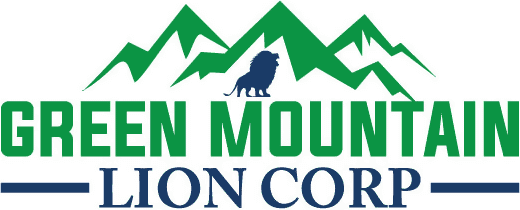What makes a strong leader? Is good leadership proven by the numbers or by the temperature of a culture? In an article released by Forbes, they stated that 63% of employees don’t trust their leaders. Is it safe to say that leadership within the workforce is failing, and that everyone is searching for the secret family recipe to magically mend it?
Is there a secret sauce? Does everyone have what it takes? Should the leaders in a workplace in fact be the leaders? Simon Sinek stated in his Ted Talk seminar, “Why Good Leaders Make You Feel Safe”, that leadership is a choice, it is not a rank, and that not everyone is capable of being a leader. But in today’s society, we are often hired and labeled by our job title, where leadership is misconstrued as superiority, rather than a responsibility to motivate and empower a team.
Leadership is complex, but we feel that leaders should inspire their teams to be the most successful versions of themselves. But what exactly do we think it takes? Here are the ingredients that work for our team:
Trust
Trust is a two way street. Having trust in a work relationship means proving to your employees that you are reliable, responsible, dependable and deserving of their trust. What happens when trust is damaged? It results in second guessing and not believing in each other ‒ what company can thrive off of that? Trust is slow to gain and quick to lose, so a leader must continually demonstrate trustworthy behavior to cultivate their relationships.
Approachability
Approachability is an ingredient worth measuring. Being too friendly in the workplace runs the risk of portraying weak leadership, however, too little and you are not providing a safe place to share and challenge ideas. Being approachable is being collaborative, open and objective, enabling your team to feel comfortable coming to you with good or bad news without being reprimanded.
Transparency *when necessary*
Some employees will perform tasks without question, while others need to know the backstory on why specific duties and tasks are pertinent to company success. While there are some ‘cards’ that are best to keep close to the chest, some employees have a “need to learn the details” mentality in order to understand and appreciate their full purpose. Most leaders think they need to be transparent to make people feel important – but extreme transparency can cause fear and anxiety or undue hope. Choosing what is acceptable to share and, more importantly, not to share is crucial in its effectiveness.
Courage
A good leader should have courage. Courage is something that everyone has ‒ some in larger doses than others. Some people’s courage is suppressed by the fear of being judged or penalized, while others have an abundance of courage and can more easily navigate the workplace from outside of their comfort zone. Courage can show up in the form of admitting that you might not have all the right answers, or even in being flat out wrong‒but being aware of and learning from your mistakes is what helps shape trust and growth. A strong leader will also utilize courage to stand up for the group, letting the group know that mistakes and all, they’re respected for their hard work and efforts.
Humility
Reading a recent Forbes article, “The Value of Humility in Leadership”, it stated, “we are all living during a time when people want and expect their leader to be more human, less perfect and at times a bit vulnerable – regardless of hierarchy or rank.” A leader that is humble and puts the employees first will see a higher engagement rate. People don’t need a perfect leader but they will gladly follow one that owns up to mistakes. A leader shouldn’t rely solely on their image to make people feel they are important.
Empowerment
A good leader will empower their teammates. Empowerment can be broken down into a lot of different categories on “how” to empower your team. Empowered employees are loyal, committed, and driven. When empowered employees are given the tools and support needed to be successful, the benefits are endless. For example, your employees may go the extra mile, embrace change, and even provide better customer service.
Adaptability
Having the ability to adapt and overcome obstacles as they come up requires a problem-solving mentality. A leader who is simply checking boxes on a Standard Operating Procedure is not challenging themselves or their teams to be making continuous improvements for themselves or the company. In addition to environmental adaptation, a leader should be able to exhibit transformational leadership through evaluating the individual strengths on their team in order to provide each team member with tailored motivational tools and resources that set them up for long term success.
Emotional Self-Regulation
A leader should have the ability to react to demands and carry out tasks while exhibiting an appropriate and consistent persona. ‘Reading the room’ is paramount when striving to appease the needs of a direct employee, contractor, customer or member of the board of directors. A high emotional IQ will aid a leader in determining the correct behavior or action for each individual person, environment and situation. Being self-regulated is to stay poised and rational ‒ laying the groundwork for a team to be methodical in their approach to assigned tasks and obstacles that may come across their desk.
Collectively, we feel that these are the ingredients that make up the ‘secret sauce’ for our team, but strong and effective leaders may contain different doses of each. Being a great leader is also about reading your audience and adjusting your different leadership strengths as needed. What works for our team may not necessarily work for you ‒ our team strives to have the best environment to nurture the concept of being our best selves.
For those of you who have spoken to our team in the past, you may have noticed that we refer to each other as ‘teammates’. It’s not about the title for us ‒ we all play an integral role in achieving our goals as a business. We are in the business of people, so it’s only fitting for us that our culture reflects a ‘people-first’ environment where each team member’s strengths are being leveraged to enhance team productivity and employee satisfaction. While utilizing one’s strengths are important in attaining goals at a rapid rate, being in a safe space to admit and work on weaknesses will allow each team member to grow into a more robust and multi-faceted asset for the company.
Our hope is not that you scrap your current leadership style and follow our recipe, but instead that you to take away the idea of creating your own sauce and recognizing what ingredients are important to you!

